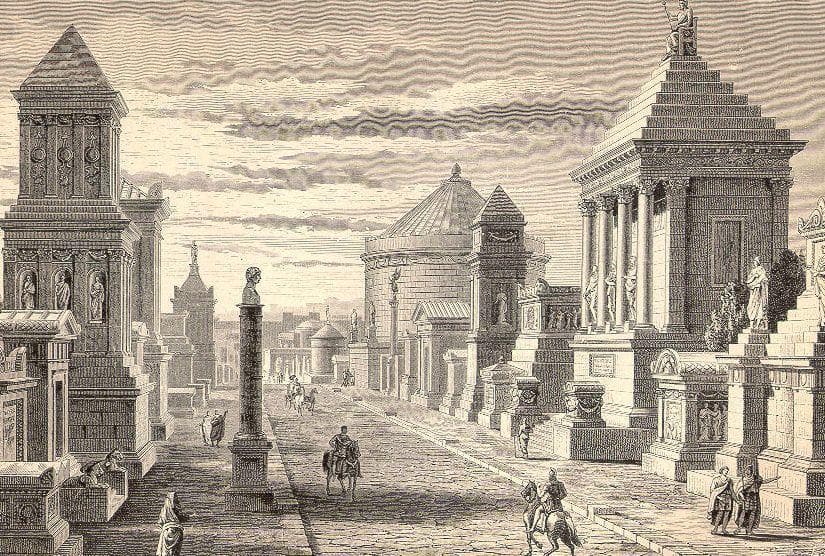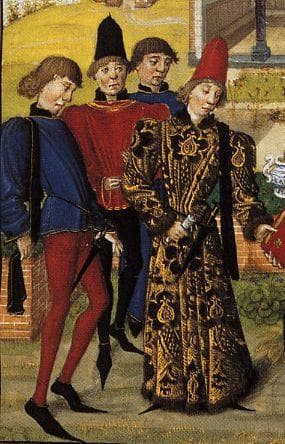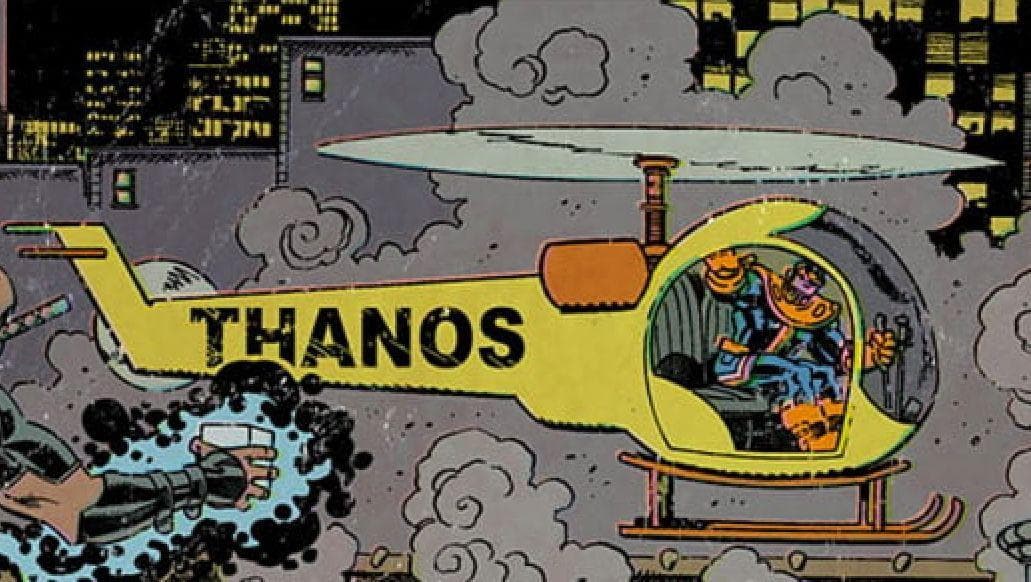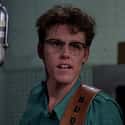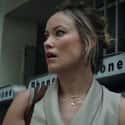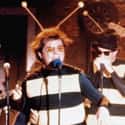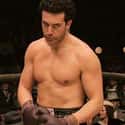-
(#1) Titanic
- Leonardo DiCaprio, Kate Winslet, Billy Zane, Kathy Bates, Frances Fisher, Gloria Stuart, Bill Paxton, Bernard Hill, Jonathan Hyde, Victor Garber, David Warner, Danny Nucci, Suzy Amis, Bernard Fox, Richard Fox, Emmett James
First Officer William Murdoch went down with the Titanic in 1912. He was in charge at the time the ship hit the iceberg and, according to witnesses, helped organize the loading of passengers into lifeboats on the starboard deck. As he left the boat, fellow officer Charles Lightoller claimed he specifically remembered seeing Murdoch helping passengers in that area and, since Murdoch was never seen again, it was assumed he went down with the ship.
In the 1997 film Titanic, possibly to heighten the tension onboard the ship as it sinks, director James Cameron chose to include a scene in which Murdoch accepts hush money to allow a passenger onto a lifeboat. Later, he fires a gun into the crowd, then turns the piece on himself to take his own life.
Although a few witnesses claimed to have heard pistol shots after leaving the ship, and several claimed to have seen an officer fire at a few passengers to control the crowd, none of these accounts mention Murdoch. At official inquiries into the disaster, however, witnesses said nothing about arms. An officer firing shots at passengers before taking his life was an unsubstantiated legend until Cameron decided to include the alleged scene in his film and make Murdoch the shooter.
For Murdoch's nephew, Scott, Cameron's decision to include a rumor over facts was hurtful. "From my own family connections and also from my father having spoken to various officers who survived, he didn't commit suicide," he said. "If someone says to you somebody in the family committed suicide when he hadn't, you take objection."
The Murdoch family reportedly contacted Cameron twice before the movie's release to voice their complaints, but they went unheard. After the movie's release, Cameron finally confronted their objections by making an official apology for his depiction of Murdoch:
I think I have come to the realization that it was probably wrong to portray a specific person, in this case First Officer Murdoch, as the one who fired the weapon. First Officer Murdoch has a family and they took exception to that, and I think rightly so.
-
(#9) The Buddy Holly Story
- Gary Busey, Don Stroud, Charles Martin Smith, William Jordan, Maria Richwine, Conrad Janis, Albert Popwell, Amy Johnston, Jim Beach, John F. Goff, Fred Travalena, Dick O'Neil, Stymie Beard, M.G. Kelly, Paul Mooney, Bill Phillips Murray, Freeman King, Steve Camp, Jody Berry, Robert Christopher, Arch Johnson, Neva Patterson
Executive producer Ed Cohen had many excuses for Buddy Holly's family and friends being upset at his depiction in The Buddy Holly Story, from budget and time constraints to the fact movies can invent their own reality.
"Whatever we put up there on the screen will be the truth," Cohen said. "Ask moviegoers who invented the telephone. They'll tell you that Don Ameche did." This is a reference to the actor, who once played Alexander Graham Bell.
The Buddy Holly Story is based on a book by John Goldrosen, which is not considered an official biography and, according to original Cricket Jerry Allison, the movie got basic facts incorrect. Allison says that the movie suggests the Crickets was a 12-person band when, in fact, "there weren't 12 Crickets during Buddy's [entire] career."
The movie also shows Holly playing with a full orchestra on his final tour when, in reality, he only recruited three people. The film also implies Holly wrote all his music himself without any help and completely omits Norman Petty, a producer who greatly helped Holly's career.
Holly's family was hurt by the film's implication they held no importance to Holly. "We were disappointed by the movie because it wasn't what we thought it was going to be," Holly's mother, Ella, said. "That church scene [where Buddy and rock and roll are condemned from the pulpit] could never have happened. Buddy was close to his pastor, the Reverend Ben Johnson, and he was a member of the Tabernacle Baptist Church."
While the movie depicts Holly's family as against his musical career and constantly telling him to quit, Holly's parents said this was untrue. "We were behind Buddy 100%," his father recalls. "We were very anxious for him to make a career as a singer. We were his biggest fans."
Although the filmmakers told the family they'd be able to view the script before filming, the filmmakers allegedly never followed through. "They didn't ask us about a thing," Holly's brother Larry claims. "I didn't feel that was my brother up there on the screen. We weren't happy with the movie at all."
-
(#6) Kathy Scruggs's Colleagues Were Furious About Her Indecent Proposal In 'Richard Jewell'
Clint Eastwood’s film Richard Jewell professes to tell the true story of a security guard whose life-saving actions during the 1996 Atlanta Olympic Park bombing resulted in Jewell being investigated by the FBI and having his life upended in a public firestorm. Ironically, however, the Atlanta Journal-Constitution ended up blasting the film for its defamation of Kathy Scruggs, a real-life AJC reporter, claiming she was unfairly maligned by the film’s loose interpretation of her character.
In the film, Scruggs (Olivia Wilde) makes an indecent proposal to an FBI agent (Jon Hamm) in exchange for landing a scoop, an event which, according to the AJC (and not directly disputed by Warner Bros.), never actually happened. Kevin Riley, an editor at the AJC, called it “lazy storytelling” and proclaimed “it was very upsetting to see Kathy Scruggs portrayed in a way that demeans not just her work, but the work of the AJC.”
Ron Martz, Scruggs’s longtime colleague at the paper, added, “If they had actually contacted me it might have ruined their idea of what they wanted the story to be.”
An attorney for the paper pointed out, “It is highly ironic that a film purporting to tell a tragic story of how the reputation of an FBI suspect was grievously tarnished appears bent on a path to severely tarnish the reputation of the AJC.”
Warner Bros. responded that the film was “based on a wide range of highly credible source material.” The movie also ends with the disclaimer, “The film is based on actual historical events. Dialogue and certain events and characters contained in the film were created for the purposes of dramatization.”
Wilde passionately defended her portrayal of Scruggs, claiming, “I did a ton of research, I really embraced her dynamic, multidimensional nuanced personality,” and “I think it’s a shame that she has been reduced to one inferred moment in the film.”
-
(#7) Wired
- Michael Chiklis, J. T. Walsh, Alex Rocco, Ray Sharkey, Patti D'Arbanville, Lucinda Jenney, Jere Burns
When Bob Woodward wrote the John Belushi biography Wired in 1984, many thought the legendary reporter who helped uncover Watergate would shed new light on the comedian's life. However, when the book was released, both Belushi's family and friends spoke out against the inhuman character Woodward presented in his work.
Members of Belushi's family were so angry, John's brother, Jim, even called Woodward a "c*cksucker." Belushi's wife, Judy, originally hired Woodward to write the book, since she valued his investigative skills and thought he might uncover any hidden facts about the way the police handled her husband's passing. Despite her intentions, Belushi's family and friends accused the book of focusing on his problems with substances and not bothering to examine the talented man behind them.
"I hated Woodward's book because I don't believe he made an honest attempt to understand John, who despite his sometimes gruff exterior was a gentle soul," fellow comedian Al Franken said.
When Woodward's book was made into a film in 1989, the criticism continued. Despite the negative feedback received, bidding rights for the book reportedly reached $2 million. Filmmakers cast the then-unknown Michael Chiklis as Belushi, and the film opens with him waking up in the morgue and running around naked, screaming.
It becomes a sort of meta-tale as it includes Woodward's investigation, gives Belushi a guardian angel friend, and depicts the comedian as a casual bigot. Although it probably has nothing to do with the book's criticism and was judged by its own failures, the movie has a 4% critic rating on Rotten Tomatoes.
Dan Aykroyd called the book "exploitation, pulp trash," and Judy claimed, "The man in Wired is not the man I knew... He was a very likable person. He had a terrific presence, and Woodward missed all that."
-
(#5) Once Upon a Time in Hollywood
- Leonardo DiCaprio, Brad Pitt, Margot Robbie, Kurt Russell, Dakota Fanning, Damon Herriman, Austin Butler, Emile Hirsch, Scoot McNairy, Luke Perry, Al Pacino, Nicholas Hammond, Spencer Garrett, Mike Moh, Lena Dunham, Damian Lewis, Bruce Dern, Timothy Olyphant, Zoe Bell, Michael Madsen, James Remar, Brenda Vaccaro, Margaret Qualley, Julia Butters, Samantha Robinson, Lorenza Izzo, Costa Ronin, Rumer Willis, Rafał Zawierucha, Clifton Collins, Keith Jefferson, Maya Hawke, Sydney Sweeney, Dreama Walker, Victoria Pedretti, Madisen Beaty
In Once Upon a Time in Hollywood, director Quentin Tarantino recreated 1960s tinsel town for a fictional story that also includes depictions of real people. Martial art film star Bruce Lee is among these (played by Mike Moh) and fights stuntman protagonist Cliff Booth (Brad Pitt), who throws Lee into the side of a car.
According to Lee's daughter, Shannon, the personality of the character in the film is nothing like her father. She claims, "He comes across as an arrogant *sshole who was full of hot air and not someone who had to fight triple as hard as any of those people did to accomplish what was naturally given to so many others."
In real life, Lee was born in America and grew up in Hong Kong before returning to America to teach martial arts and appear in films. He had to fight for his first role on TV's The Green Hornet, was paid less for his work, and received fewer lines because of his race. It's this time period that's depicted in the movie.
According to Shannon:
I can understand all the reasoning behind what is portrayed in the movie. I understand that the two characters are antiheroes and this is sort of like a rage fantasy of what would happen... and they're portraying a period of time that clearly had a lot of racism and exclusion. I understand they want to make the Brad Pitt character this super bad-*ss who could beat up Bruce Lee. But they didn't need to treat him in the way that white Hollywood did when he was alive.
Not only did Shannon object to Tarantino's depiction of her father, but so did basketball legend and Lee's Game of Death co-star Kareem Abdul-Jabbar. "Tarantino has the artistic right to portray Bruce any way he wants, but to do so in such a sloppy and somewhat racist way is a failure both as an artist and as a human being," he said. "That's what makes the Bruce Lee scenes so disappointing, not so much on a factual basis, but as a lapse of cultural awareness."
China has agreed with these claims and, after Shannon voiced complaints to the country's National Film Administration, it asked Tarantino to make cuts to the scene featuring Lee to make his depiction less insulting. When the director said no, China refused to release the film in their country.
-
(#3) Cinderella Man
- Russell Crowe, Renée Zellweger, Paul Giamatti, Craig Bierko, Paddy Considine, Bruce McGill, Ron Canada, David Huband, Connor Price, Ariel Waller, Patrick Louis, Rosemarie DeWitt, Linda Kash, Nicholas Campbell, Gene Pyrz, Matthew G. Taylor, Jake Richards, Fulvio Cecere, Duff MacDonald
The climax of 2005's Cinderella Man features protagonist James J. Braddock (Russell Crowe) fighting and beating Max Baer (Craig Bierko) to become heavyweight champion. While this is an accurate portrayal of what happened in reality, Baer's son Max Baer Jr. took offense at director Ron Howard's depiction of his father.
In the movie, Baer is mean, bloodthirsty, and feels no shame about telling Braddock's wife he'll finish off her husband and then take her as his own wife. Baer Jr. claimed his father's personality was very different than that seen in the movie and was offended he had been turned into a villain. "I have great respect for Ronny Howard," Baer Jr. said. "But he never called me for any factual information about my father. They distorted his character. They didn't have to make him an ogre to make Jimmy Braddock a hero."
Although the film accurately shows Baer wearing a Star of David on his boxing trunks, Baer also took offense to the movie failing to mention he did so to show solidarity with Jewish boxing fans in New York. Many members of the Jewish community believed Baer to be a hero after he fought and beat Max Schmeling, the pride of the Third Reich.
In the movie, Baer brags about how he killed boxer Frankie Campbell in the ring, which helps cement him as the film's swaggering, hateable villain. But that incident was actually hugely traumatic for Baer.
"My father cried about what happened to Frankie Campbell," Baer Jr. remembered. "He had nightmares. He helped put Frankie's children through college."
Others backed up Baer Jr.'s claims about his father's personality, often referring to him as "lovable clown." Lightweight champ Tommy Loughran recalled, "Max was the most misunderstood fighter of them all. He was the nicest guy. He had the heart of a lion."
New Random Displays Display All By Ranking
About This Tool
Our data comes from Ranker, If you want to participate in the ranking of items displayed on this page, please click here.

